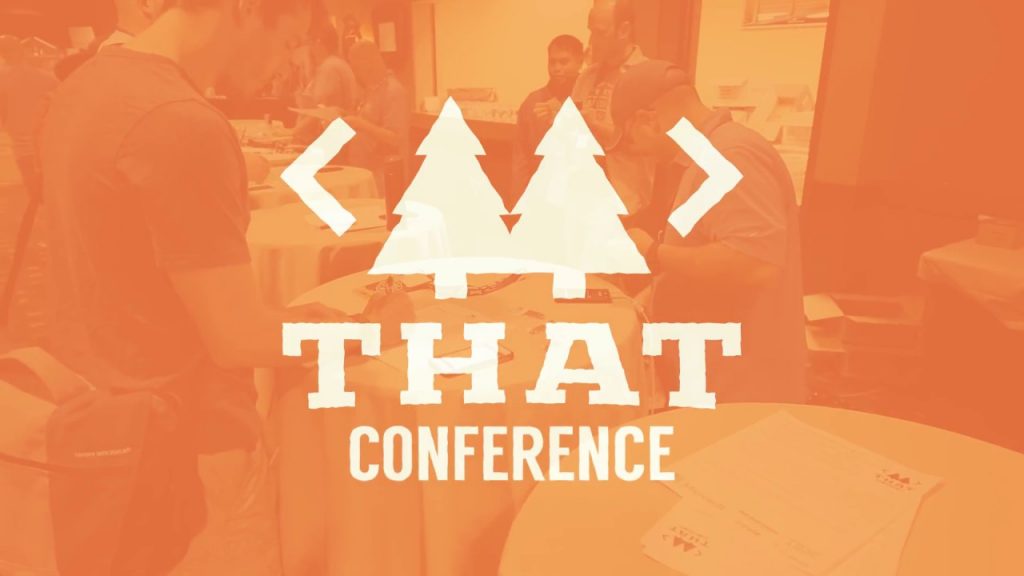
How to Work with Your Conference Speakers Effectively
Conference speakers are the backbone of every event. They provide the content, their names provide intrigue, and their profiles can help boost your event’s visibility. In this post, some of our customers at Tito have shared how they work with speakers to help you learn some new ways to involve them for their benefit and for the benefit of your events.
Andy Croll from Brighton Ruby

You might know Andy Croll if you’ve ever been to a Ruby event or, in fact, his Ruby event, Brighton Ruby. Andy’s one of those cheery personalities that lights up a room, even if it’s via teleconference, as was the case for our conversation.
As well as hosting, Andy’s keynoted many large-scale conferences and, as such, is a huge proponent of working with conference speakers in a way that makes them want to promote the events they speak at.
“There’s another angle to marketing, which is speakers. I very much believe that any event that doesn’t pay its speakers or cover accommodation or charges them for a ticket… that sounds like madness to me.
“I treat all my speakers the same. Everyone gets the same offer of hotel room, help with their talk preparation, and an honorarium. I’ve had people come up to me at other events that I’ve spoken at and say, ‘I’ve heard of your conference.’ Even US-based people who have no reason to have heard about my UK-based conference in their day-to-day work.”
“But they’ve heard about Brighton Ruby and heard good things from people who had spoken there. That’s ‘word of mouth marketing’ that comes from doing the best that you can for the real stars of your event.”
“I did a Code of Conduct talk at the beginning of Brighton Ruby 2018; essentially a lightning talk about why we have one, the behaviour expected from attendees and what to do if anything bad happened. I hadn’t seen that done at a conference before. I’d been fortunate that nothing had happened at my conference and that the Ruby community are generally a very nice bunch of folks. But it doesn’t take more than one or two bad apples to ruin someone’s day.
“That was the best reception to a talk I’ve ever had. I had tons of folks come up to me about that talk, even more than when I keynoted RubyConf, and Brighton Ruby is a much smaller room. It went on to become shared widely on social media. I don’t consider that ‘marketing’, but it sort of markets itself by being a safe environment.”
“It’s a holistic approach to marketing. Come or don’t come, I’m not going to hard sell you.”
Two Approaches for Creating a Solid CFP Process
Andy’s story tells us that speakers can be invaluable brand advocates and well-placed to create interest for potential attendees, but there’s something every conference needs before they get to that stage: a call for proposals (CFPs).
CFPs take many forms, from a single Google Doc, to a well-oiled, session-generating machine. Finding a process that is attractive to potential speakers, easy to understand, and easy to sort through as an organiser can take time to master. Thankfully, two of our contributors were willing to share the approaches that they’ve found work best for them, and which may well work for you too.
Saron Yitbarek from Codeland

“We have a very different CFP process. It’s, frankly, a lot more intensive. It takes a lot more thought. I don’t really agree with the whole ‘abstract details’ way of doing CFPs. That’s never really made sense to me because what’s an abstract? You know? Like, I’ve been on programming committees, I’ve seen maybe over 1,000 talks at this point and, yeah, abstract — people can use that in so many ways that it’s not really helpful in assessing a talk.
“It can really be whatever you want to be. So, what we ask is, what is the story the speaker wants to share? What’s the intention? What’s the purpose? How do you want people to feel after your talk is over? What type of research do they plan on using? Will there be any code?
“We try to ask questions that help you assess your own talk. I know a lot of people submit a talk with ideas they barely have, that are half-baked. And they kind of say, ‘Oh, once I get accepted I’ll figure out what I really want to say.’ You can’t really do that with our CFP.
“That’s because when we pick your talk we want to have a very clear idea of what this talk is gonna be like. And so ours is a lot more involved and a lot more thoughtful than I think the traditional CFP process is.
“When I was submitting for conferences and it says ‘abstract and details’ I don’t know what they want. How much information should I put? Is there such a thing as too much information? It’s basically giving me a blank canvas and asking me to make this beautiful picture, but maybe I don’t know what kind of picture you want.”
Clark Sell from THAT Conference

“We have a two month window where we accept session submissions from any interested party. These sessions then break down into three categories: family sessions, workshops, and a more typical eyes-forward lecture. This year almost 500 people submitted reaching almost 1,000 total sessions.
“Once session submissions close, we open up a voting system for the eyes-forward lectures and the workshops (family sessions are omitted from voting and curated differently). We remove any identifiable information; your name, social handles, any notion of gender, in an attempt to remove any natural bias and then randomize them for each person voting.”
“Voters can thumbs-up/thumbs-down the session based on their interest to attend. The reality is, you’re either interested or you’re not. We take all the voting information and use it to score and rank the sessions.“
“Along with that, we then look at the submitted speaker to learn more about them. Looking at things such as, have they spoken in the past? Have they not spoken before? Do they need mentoring? Then we go through all the sessions one-by-one and figure out where this year’s story will be — you could have a super-popular topic that say 75 people submitted some variation on, but because we’re going to balance 100-150 sessions, we may only choose one of the submissions to represent that topic.
“Things such as voting can fall down because people may not have voted on each of the submissions for a topic due to the randomization. This can dilute the results, so the system is never perfect. It has to have human involvement and we work hard to be as fair and balanced as possible.”
What About Attracting Big Names to Your Event?
Sylvain Bernard from Applied Machine Learning Days

Of course, when it comes to getting together your conference speaker line-up, there might be someone you really want to have among it, but they might not submit a proposal. Instead, you might have to reach out directly to them. And, it might be a little easier to book them than you think.
Whether or not you’re a chess fan, you’ve more than likely heard of Gary Kasparov. While he wouldn’t quite be the right fit for every kind of conference (though maybe he’s a C++ expert and we just don’t know about it), he was certainly a great candidate for Applied Machine Learning Days. One of the organisers, Sylvain Bernard, was more than happy to talk us through the process they used to land such a big name speaker.
“We wanted to have Gary Kasparaov from the beginning. He’s kind of one of the first known people to have lost in his job against a computer. He’s famous in the public area. People in the streets would know chess, and his name. We tried to invite him a few times. He’s doing events and speaking for living at this point in his career. He’s asking for fee which is… considerable. We had to increase our budget and do everything possible to have more participants; to have a little more money from ticket sales to be able to afford him.
“In terms of contacting him, it was quite easy — we just sent an email to his assistant. We explained a little bit about what we’re trying to do, what our crowd, attendees and event look like. Then, he was quite interested in attending.”
You’re Not Bothering Your Speakers
Sunny Leggett from Zero Slope Events

Some organisers feel uncomfortable with the idea of asking their speakers to promote the conference, or even asking them if they’ll share that they’ll be presenting. While it can feel like a favour, most of the time speakers are happy to help, as Sunny tells us:
“If you tweet that this person is coming to speak at your conference, now all of a sudden you’re reaching out to all of their followers once you tag them, and you generate interest through a trickle-down effect.”
“We tweet about all of our speakers, we send a speaker email out with links to their videos and things like that. We’ve also asked our speakers to send a couple of tweets out letting people know they are speaking. Speakers are motivated, they want people there. I don’t think that’s bothering your speakers, it’s promoting them!”
As you can see, you can take a proactive stance in involving your speakers in every stage of your event. From promotion to making sure they have a delightful experience and spread the word organically, they are a vital part of your conference team and invaluable to making the conference or event everything you’ve hoped it could be.